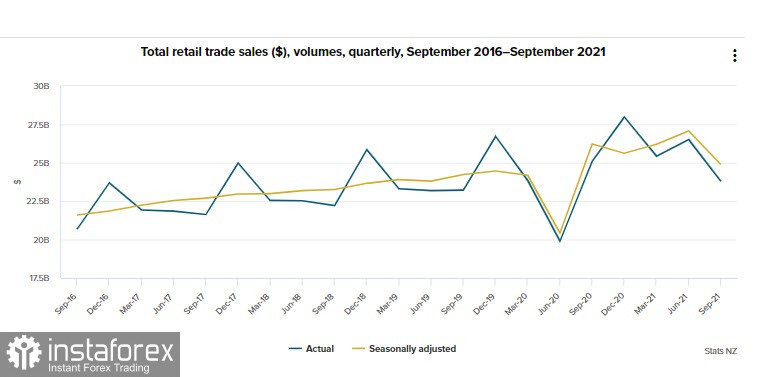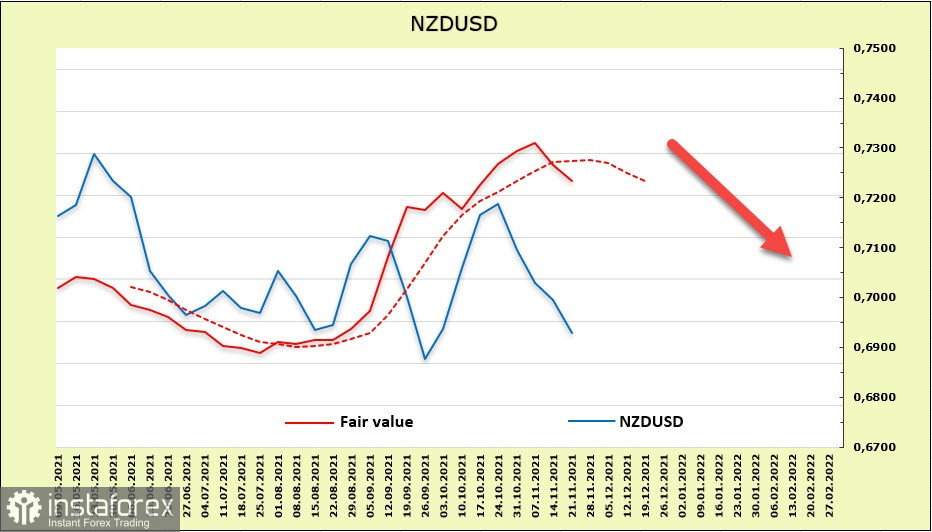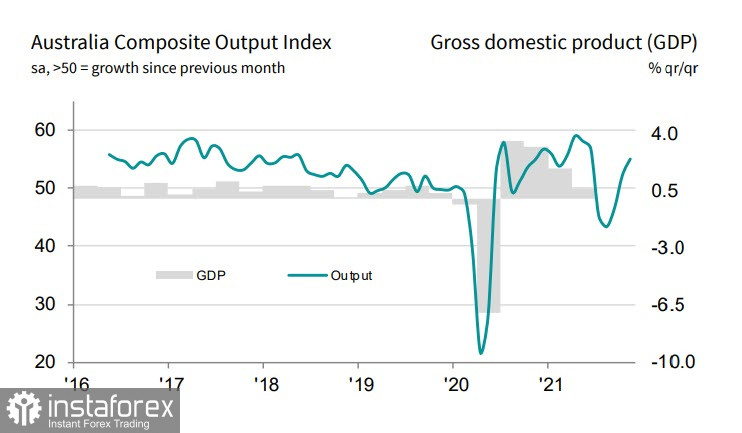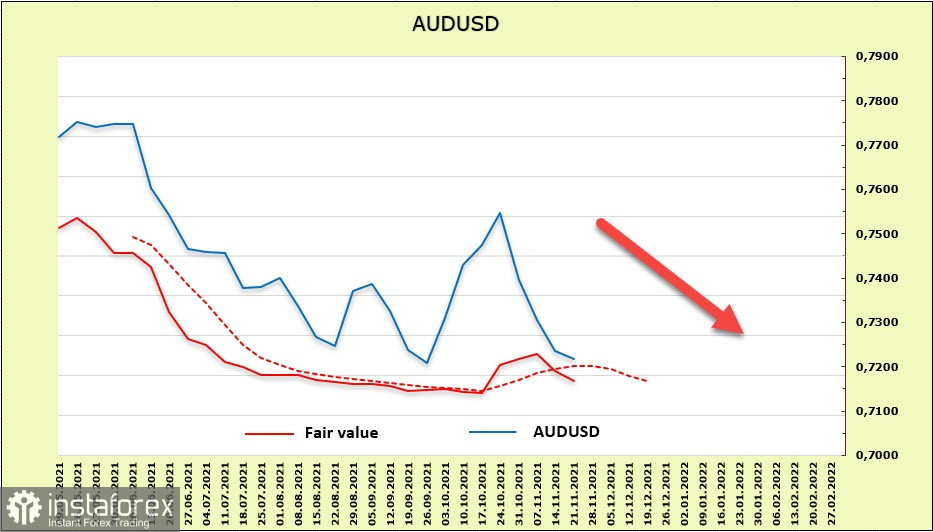News about the appointment of J.Powell's second term as the Fed chairman led to a significant increase in demand for the US dollar and a shift in the yield curve. The markets regarded this as an indicator that the Fed is leaning towards a slightly more aggressive policy than most recently assumed. In addition, Friday's comments by Waller and Clarida about the need to accelerate the pace of the QE cut may signal that the Fed is starting to seriously consider raising the rate in Q2, and not at Q3, as was thought quite recently.
In other words, the markets perceived Powell's reassignment as a bullish signal, and the quotes of the main antagonist of the US dollar, namely gold, sharply went to 1800. The US currency retains the status of the main favorite of the currency market.
NZD/USD
The main intrigue until recently was how quickly the RBNZ is ready to implement its plan to normalize monetary policy. A couple of weeks ago, the probability of a 0.5% rate hike immediately reached 60%, for which there were quite good reasons, but the latest data turned market expectations upside down, and now the probability of a 0.25% and 0.5% rate hike looks like 60 to 40.
The RBNZ meeting will take place on Wednesday night, and along with the publication of the results of the meeting, the intrigue will disappear. Expectations of more aggressive actions have supported the outpacing growth of NZD since August, as there were a number of prerequisites for the RBNZ being ready to act more aggressively. However, it turned out that the volume of retail sales in Q3 sharply fell by 8.1%, which means that the level of consumer demand was overestimated.

The housing market, which has grown at the fastest pace in the entire 16-year history of data collection, has reached a peak, which has led to an increase in mortgage rates and should inevitably begin to cool down in the near future, which is also a reason to revise inflation expectations downwards.
The 0.25% rate increase has already been fully considered by the market, and this decision of the RBNZ will not lead to a strengthening of the New Zealand dollar. An increase of 0.5% may trigger a gap, but, again, such a move by the RBNZ has become much less likely.
The bullish advantage in the futures market still remains for NZD. The net long position even slightly increased by 58 million to 976 million, but the settlement price turned down, mainly because T-bills lost their advantage against UST, that is, market expectations changed in favor of a slower rate increase.

So, the more likely development of events is the formation of a local base near the lower border of the 0.6900/20 channel, followed by an attempt to break the channel down with a target of 0.68. A less likely scenario is an increase from the channel border to 0.7070/90, but this will happen only if the RBNZ surprises the markets and still raises the rate immediately by 0.5%.
AUD/USD
According to IHS Markit, the Australian economy continues to recover at a good pace. The composite PMI index rose to 55 p against 52.1p a month earlier, primarily due to the services sector.

The growth of the Australian dollar is restrained primarily by a high uncertainty in the commodity market, primarily in the energy market, which is a serious export item for Australia, as well as the general dominance of the US dollar, which is growing against both raw materials and defensive currencies.
The AUD slightly reduced the net short position by 213 million to -4.466 billion, but the bearish advantage is still large. The estimated price is below the long-term average, and there are no signs of an upward turn.

The Australian dollar did not stay in the channel, declining below the border of 0.7170. The chances for a further decline look more preferable. If this currency goes below the previous low of 0.7170, then the fall may accelerate. This is the nearest target, after which a test of the support level of 0.7109 is inevitable.
 English
English 
 Русский
Русский Bahasa Indonesia
Bahasa Indonesia Bahasa Malay
Bahasa Malay ไทย
ไทย Español
Español Deutsch
Deutsch Български
Български Français
Français Tiếng Việt
Tiếng Việt 中文
中文 বাংলা
বাংলা हिन्दी
हिन्दी Čeština
Čeština Українська
Українська Română
Română

